Just landed in Canada with your PR or about to Land soon? Great! But hold on, there’s more to do. I know you are curious to know, What to do after landing in Canada.
Landing in Canada is just the start of a new life as a new immigrant. You’ve got to set yourself up in this new place.
Right from when you first step into Canada and meet the immigration officer, your new journey begins. There are lots of important things you need to do after getting PR.
So, what are these things? Don’t worry, I’ve got you covered. I’ve put together all the key steps you need to take after getting your COPR, and I’ve included my own experiences too.
First things to do after getting PR (Quick List)
| # | Printable Important things list |
| 1. | Activate Permanent Residency (PR) |
| 2. | Get Social Insurance Number (SIN) |
| 3. | Apply for PR Card |
| 4. | Get Local SIM/Mobile Connection |
| 5. | Setup Bank Account |
| 6. | Get Heath Card |
| 7. | Find Accommodation |
| 8. | Apply for Utility |
| 9. | Explore City (Relax) |
| 10. | Apply for Child Care Benefit (CCB) |
| 11. | Visit Newcomer Settlement Agencies |
| 12. | Get a Driving License |
| 13. | Get Internet/Wifi Connection |
| 14. | Get Transit Card |
| 15. | Visit Employment Agencies |
| 16. | Prepare for the Job Interviews |
| 17. | Join Newcomer Mentor-Ship programs |
| 18. | Buy Your First Car |
| 19. | Apply for a provincial ID Card (optional) |
| 20. | Flu Shots |
| 21. | Register your Child for Daycare/Schools |
| 22. | Start Networking |
| 23. | Find Volunteering Opportunities |
| 24. | Check the nearest Furniture Bank |
| 25. | Search Household items |
| 26. | Download Offline Google Map |
| 27. | Get Library Card |
| 28. | Language Assessment |
| 29. | Get Local Emergency Contacts |
| 30. | Shopping Membership Cards |
I have tried my best to cover all the important steps after receiving COPR and explained how to do that including my own experiences as well.
I hope you find this helpful as you start your new life in Canada!
Important Things to Do After Landing in Canada as PR
Let’s proceed toward my step-by-step checklist guide, from things to do on the very first day, to the first week and first month.
I’ve shared a lot of my experiences and important tips.
Let’s begin.
1) Activate your Permanent Residency
We all know you receive confirmation of permanent residency (COPR) in Canada but it is not yet activated. I hope you know it but don’t get disappointed and tense. It is a normal procedure for everyone.
The letter of COPR and Visa is just the confirmation that you have received the permanent residency but it will be activated when you land at the first port of entry in Canada.
The immigration officer will ask some general queries at the time of the landing interview and once he/she is satisfied with the given details and the details you are telling him/her only then the immigration officer will sign and stamp your confirmation of permanent residency (COPR).
For more details on what the immigration officer asked me at the time of landing :
You can read my: First Landing Experience at a Canadian Airport as a Permanent Resident
Congratulations! You are now an official Canadian Permanent Resident. Cheers!!
So, What next after getting Canada PR?
2) Apply for Social Insurance Number (SIN)
The next step is to apply for the Social Insurance Number. Social Insurance Number is a 9-digit unique number given to everyone by the government to access various government benefits and programs.
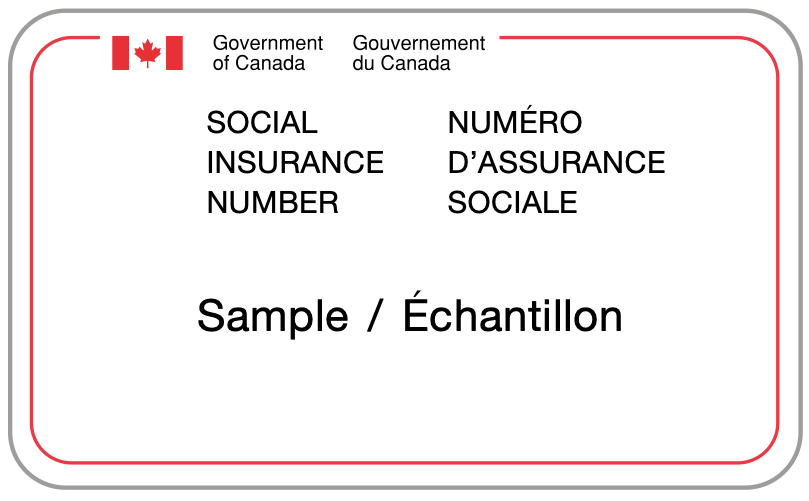
It is a general practice to protect your SIN number and not to tell anyone unofficially. Only share your SIN number with official matters.
You can apply for SIN at the landing airport if you have a temporary address in Canada.
If you don’t have a Canadian address yet, then you can also apply to the Service Canada office located at various locations in a particular city. You can visit there without an appointment.
This is a very smooth process. After passport / CoPR documents verification, Officials will provide you with a piece of paper on which your Social Insurance Number will be mentioned with some more information.
- For more details check How to Applying for a Social Insurance Number (official website)
Keep it confidential and safe. Save it carefully as you will need this number while applying for various government benefits forms, tax filing, health benefits, etc.
3) Apply for Permanent Resident Card
During the landing interview, the immigration officer asked about the permanent address for delivering the permanent resident card.
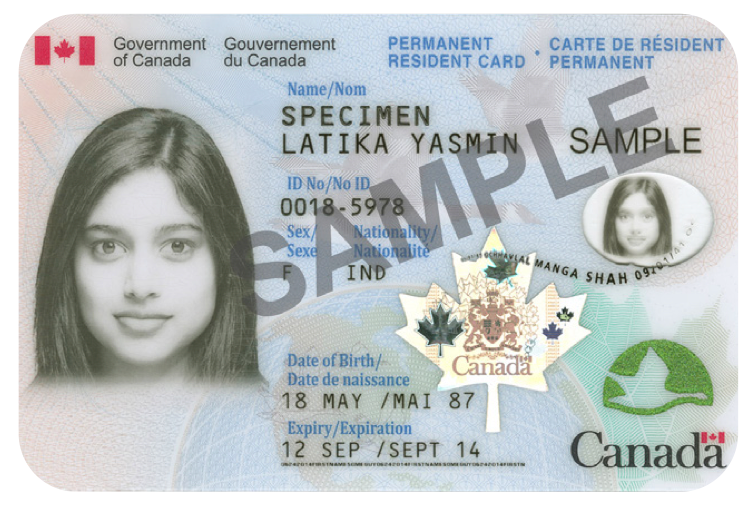
If you don’t have a permanent address at that time, he will give you a form “ADDRESS NOTIFICATION – PERMANENT RESIDENT CARD” where you will find the instructions on how to update the address for a permanent resident card later.
You can call on given PR card call center number fax the given form to the PR card processing center or access the online address notification on the official website.
- Check here How to Get a permanent resident card (official website)
Once applied or updated the address in any way, you will receive your permanent resident card within 6 weeks.
The easiest way to apply for a PR card is via a call center number, I applied in the same way and received my permanent resident card in 3 weeks.
Make sure your calling time should be the early morning starting hours of office timings, otherwise, you have to wait for a long time on call and sometimes the call center is overflowed with calls and agents put your call in automated answers.
| ⚠ Note: Don’t forget to update your address within 180 days after landing. Otherwise, you have to submit a different application to obtain your permanent resident card and you will be required to pay the application fee. |
4) Buy a Local SIM Card
Canada has various mobile networks like any other country, operate nationwide. All service providers offer different calls + text messages + data plans. The major providers are ROGERS, TELUS, KOODO, and BELL.
You can buy a SIM card from your nearest service provider’s stores or you can buy from these SIM cards via Amazon.
These are some of the top mobile network providers in Canada.
-You can compare and get these prepaid SIM cards via Amazon here:
There are individual, student, and family sharing plans available and you can choose according to your needs if you do not like the services of a particular network then you can port your number to any other service provider at any time.
Some providers also offer SIM cards plus Mobile plans in which you can buy a smartphone with a SIM card with a 2-year lease agreement by paying a fixed amount each month.
- Find out The Best Cell phone plans in Canada
To buy a SIM card you need to have two pieces of identity like your passport, COPR document, and SIN number.
| My Experience: My husband and I bought Koodo plans. It was the cheapest option with 4GB monthly data at that time.
We bought it offline from the Koodo store, they charged us $35 each EXTRA for the connection fee (We paid $35+$35 = $70). I don’t want you to lose money. So research well before choosing the longer-term network and signing the agreement.
|
|
Whereas the connection fee is $0 when you order online.
|
5) Set Up a Bank Account and Apply for a Credit Card
Managing finance is a major concern for everyone in any country so is here in Canada.
The major banks all over Canada are TD, RBC, Scotiabank, CIBC, HSBC, BMO, etc.
How to open a bank account in Canada?
To open a bank account in Canada after landing, you will need a COPR document (If you don’t have a PR card), a SIN number, and a copy of your passport.
You will have to call a bank and book an appointment with them.
Although you can open a bank account from your home country too before coming to Canada, I will suggest you open an account after arriving in Canada so that you can physically visit banks before making the decision.
Research before opening an account as banking is costly here in Canada where you have to pay for a transaction after a certain period.
Some banking institutions give great initial month benefits to new immigrants and students so take advantage of those benefits like no transaction fees for the first six months, free reward points, free credits bonus (vary from $100-$500 or more) and no need to maintain a minimum balance in the account, etc.
You may check different banks ‘Newcomers’ programs/offers here and then compare them carefully :
| TD Bank – Newcomers | |
| RBC – Newcomers | |
| Scotiabank – Newcomers | |
 |
CIBC – Welcome to Canada |
| HSBC – Newcomers | |
| BMO – Newcomers |
To learn more about the banking system and all other queries, visit the official Financial Consumer Agency of Canada.
There are two types of bank accounts ‘ savings and Chequing’.
You’ll need a chequing account as most employers demand a direct deposit of salary each month. In some countries, chequing accounts are named as the current account.
A Bank account is necessary to pay your phone bills, utility bills, and any other shopping transactions.
In addition to this, to take advantage of Canadian benefits like child care, low income, etc. you must have a Canadian bank account number.
Apply for a credit card as soon as possible. It is always a good practice to pay your bills before the last date to build a good credit history as credit history helps you to take a loan for your house, or car, or to start a business in the future.
If you have some valuable items like jewelry, you can opt for lockers in the bank although it is not mandatory.
6) Apply for a Health Card
In Canada, health care is publicly funded. You will be eligible to have health benefits if you have your health card.
To apply for a health card, you need to visit your provincial service office. You can also apply online by searching on Google.
In some provinces, it takes almost 5 months to cover up your health benefits but in some provinces like Alberta, you will get health benefits right from landing day.
As I mentioned above, health care is publicly funded but yes everything is not free and covered under health care. Most of the province’s covered and not-covered list as below:
What is covered?
- Appointments with your family doctor
- Visits to walk-in clinics
- Visits to an emergency room
- Necessary tests and surgery
What is not covered?
- Dental Services
- Prescription Drugs
- Ambulance Services
- Laboratory Test
Every province’s health care is different from each other in terms of processing time and services provided.
To apply online, please visit the following links as per your location :
- Alberta
- British Columbia
- Manitoba
- New Brunswick
- Newfoundland and Labrador
- Northwest Territories
- Nova Scotia
- Nunavut
- Ontario
- Prince Edward Island
- Quebec
- Saskatchewan
- Yukon
Once you get your health card in your hand, you will get the list of doctors near your area who are accepting new patients. You can choose your family doctor from the list and your family doctor will prescribe you the medicine according to your health needs.
There are always walk-in clinics in every neighbourhood in each province, but it is always a good practice to have a family doctor so that he/she will go through your medical history and current medical situation to provide a more suitable prescription.
| ⚠ Note: In Canada, you will never get medicines like antibiotics without a prescription. |
Thus, better to take some general medicines from home countries as health cards can take 3 months to cover general health issues.
Your employer also gives you health benefits as everything is not covered under public-funded health care cards. Some employers also give dental benefits which are very costly in Canada.
7) Find Accommodation
As you have just landed in Canada, you may be living in a place that is not permanent. Some live at their friend’s place, some at low-cost hotels, and others prefer AirBnB which is now a day popular and cheaper option than a hotel.
Finding accommodation is a hectic job but various websites and classifications make it easy. There are various websites like Kijiji, rent board and many more where you can have a look at the property and compare prices.
Read Here: Best Rentals Sites in Canada
Things to Consider Before Renting :
There are a few things which everyone needs to consider before booking an apartment:
- Distance from shopping centers, schools, public transport, work locations, banks, walk-in clinics, parks
- Availability of Heat, water, electricity, parking
| 💡Suggestion: My suggestion is to take an apartment near settlement agencies for the starting period and after that shift according to your needs or working locations as everyone needs to visit settlement agencies many times in the starting days. |
Make your budget according to your and select an apartment that includes heat and water. Sometimes the owner can include electricity, internet, and cable connection too with an increment in rent.
An apartment or house can be full-furnished or un-furnished.
Parking can be and cannot be included in the rent so don’t forget to confirm.
The rent agreement can be renewed monthly (some companies has a month to monthly options) as well as yearly.
Agreements which renew yearly are cheaper than monthly ones with the difference of $25 to $50 or more each month varying according to location and company.
Most of the owners and property managers take an advance of one month’s rent as a security deposit which is refundable or adjustable as one month’s rent.
To book an apartment, you will need your Passport or COPR documents copies and SIN number.
8) Apply for Utility
Utilities such as electricity, heat, and water. As mentioned above, heat and water are included in most apartments or houses but very few houses and apartments give the provision of electricity included in the rent.
When you rent an apartment that is managed by some rental companies, you will need to apply for utility/power/electricity by calling or visiting your nearest government utility provider’s office.
How to apply for Utility?
To apply for a utility, you will need to have the name of utility holders like you and your spouse/partner, SIN number, Rental agreement, and COPR document.
They will transfer the electricity connection to your name which is pre-installed in the property.
There will be a one-time activation fee which you need to pay and for the rest of the month, you will just need to pay for the consumed electricity.
Please keep your utility bill carefully every month as this is useful as proof of your residency in Canada.
Choose your province and check the details:
- Alberta – Energy Alberta
- British Columbia – BC Hydro
- New Brunswick – NB Power
- Nova Scotia – Nova Scotia Power
- Newfoundland – Newfoundland & Labrador Hydro
- Northwest Territories – Power Corporation
- Manitoba – Manitoba Hydro
- Ontario: has different options, which include Hydro One and Toronto Hydro
- Prince Edward Island – Maritime Electric
- Quebec – Hydro Quebec
- Saskatchewan – SaskPower
9) Take a break, Relax and Explore your city
Congratulations! You have done very well till now and are all set up for the initial after-landing formalities.
You are in your dream country and yes you are a Canadian permanent resident now. Feel the fresh air and enjoy these moments.
Take a break for some days, after all, you have gone through a very big, long and hectic process and successfully achieved your dreams.
Sleep well! Get rid of Jet lag. Do whatever you were dreaming of doing after arriving in Canada.
Explore your city and province.
Start roaming around.
Go for a walk, meet people, make friends, and just live every moment.
Before starting a new life in Canada, get refreshed.
Read local newspapers, go out to shop for your grocery items.
Analyze things and compare them with your home country.
Learn the rules and regulations of Canada.
Don’t hold yourself in your apartment if it’s COLD out there. Just get up, go out and get positive vibes before starting your new journey.
Above all, enjoy a few days’ holiday!
10) Apply for Child Care Benefit (CCB)
Canadian government gives benefits to parents who have a child or children under the age of 18 for a better upbringing of their child.
As a permanent resident, you are eligible to apply for Canada child care benefits. The Canadian government will give you child benefits each month, mostly received 20th of every month.
The Canadian government considers the mother as a primarily responsible person for the upbringing of a child. Hence, if you are a couple and living in one house, a mother will be considered as a primarily responsible person and she should be the one applying for Canadian childcare benefits.
How to apply for Child Care Benefit (CCB)?
Anyone can apply online as well as via mail by sending filled forms to the given address.
After applying you should receive your first payment:
- Within 8 weeks when you apply online.
- Within 11 weeks when you apply by mail.
If you still have any questions on how to apply, visit your nearest settlement agencies, they will help you to apply.
As Canada Child Benefit (CCB) is administered by the Canada Revenue Agency (CRA) so you have to declare your family income for the last three years whether it is in Canada or your home country in the child care benefit form. Oh, and yes, Canada’s child benefit (CCB) is a completely tax-free benefit.
To keep getting your Canada child benefit (CCB), you must file your tax return on time every year. If you have a spouse or common-law partner, they also have to file their tax return on time every year.
You must file your tax return even if your income is tax-exempt or you have no income. If you don’t file your tax return every year, your payments for childcare benefits will stop.
The amount paid for child care depends upon the total net income of a family. The maximum CCB by the government is given to those whose family’s net income is under $31,120 and whose child is under 6 years of age. Take a look below:
How much CCB amount you will get? (approx value)
- Under 6 years of age: $6,639 per year ($553.25 per month); If your family income is less than $31,120
- 6 to 17 years of age: $5,602 per year ($466.83 per month); If your family income is less than $31,120
Please visit the link to calculate your CCB according to your family’s net income:
- Calculate on the official website: How Much You Can Get – Child Care Benefit
11) Visit Settlement Organizations
Leaving your home country and starting a new life in any other country can be very tough, especially when you do not know the culture, traditions, and laws of a new country.
Settlement agencies in Canada are those who help newcomers/immigrants or refugees to settle things in Canada. Settlement agencies provide information and most of the services are free to use which helps you adjust your life according to Canadian culture.
Every settlement agency is funded by the Canadian government. A settlement counsellor in a particular organization will help you with your specific settlement needs.
The various services provided by different organizations can vary but most of the organization provides the following services:
- Helps to settle down your day-to-day life
- Fill out any kind of forms
- Learn about community services
- Assistance applying for a Health card
- Tax filling Assistance
- Child Tax Benefits Assistance for Applying
- Helps to learn English
- Offers various employment services
- Helps in finding a job
- Helps in making Canadian resumes and cover letters
- Services for Women, Youth, Refugee, and Seniors
- Shopping information (food, clothing, and more)
- Information on housing and education
- Sign up your kids for school or university
- Helps sign for low-budget housing
- Health and recreation information
- Information on getting a Drivers Licence or SIN
- Referrals to other community programs and resources
As mentioned above, several organizations all over Canada help newcomers and you can check the names and addresses of organizations on the Canadian government’s official website.
- Here on the official website, you can: Find free newcomer services near you
My Experiences with Various Settlement Services:
Saskatoon Open Door Society:
As living in Saskatoon, I visited the Saskatoon Open Door Society in my initial days which I found very helpful in many ways.
My settlement counsellor “Faiza Nasr” helped me to sign up for Canadian child care benefits, and apply for a health card, and provided much more information regarding settling down in Canadian culture.
Thank you, Faiza!
Faiza referred me to Saskatoon Open Door Society’s employment services. These people are providing extraordinary sources to help newcomers or immigrants how to find a job in Canada.
Saskatoon Open Door Society – Employment Service Unit
The Employment service unit suggested I should take some programs which will certainly help me to find a job in Canada and will be free of cost.
I joined a 6-week program under the employment service unit and my employment counsellor “Raphael Pinto” is helping me with various course lines like how to make a targeted resume and cover letter, how to prepare for an interview by practicing via mock interviews, telling me various sources where I can find my career-related jobs.
I appreciate Raphael who is delicately helping me and my 9 other classmates in making and finding their routes which directly leads to success.
Thank you, Raphael!
International Women of Saskatoon (IWS)
I also visited International Women of Saskatoon (IWS) which is also a settlement agency dedicated to women in most of the settlement programs.
Where I Met “Shaban Liban” as my settlement adviser. I appreciate the help that he provided me in our 3 or 4 meetings and I am following his guidelines to find a job from various sources.
Thank you, Shaban! For patiently handling my every call as I used to call you many times to have the various settlement details.
Global Gathering Place (GGP)
Another amazing settlement agency I have visited is the Global Gathering Place in Saskatoon.
My counsellor “Sana Khan” helped me to understand various programs that GGP is running to help newcomers in Saskatoon. I liked the way GGP publishes every month’s plan calendar which includes various programs and activities each month.
Thank you, Sana!
The one program called “Coffee and Conversations” which is held on every Thursday between 1-4 p.m. has attracted me more as this program concentrates on general conversations between newcomers and local Canadian people.
This is an amazing program to know new people and build connections in my new hometown.
12) Apply for a Driving License
To legally drive a car in Canada, you’ll need a driver’s license issued by the government of your province or territory. You must have it with you whenever you’re driving. With a driving license issued by any province or territory, you can drive anywhere in Canada.
Driving in Canada is different than in any other country as Canada drives on the right-hand side unlike India drives on the left-hand side. Rules of driving are stricter over here which everyone has to follow strictly otherwise there will be a case of a large number of tickets, penalties, demerit points, and vehicle impoundment.
Apply for a driving license as soon as possible as you will need to go here and there for many reasons. Although there are other mediums of transport available in each city having your vehicle gives you more freedom and convenience, especially during extremely cold weather.
You can drive on an international driving license for up to a certain period like in Saskatchewan; you can drive for up to 3 months if you have a valid international driving license.
Don’t forget to convert your license to English if it is in any other language.
How to apply for a driving license in Canada?
To apply for a license, you need to take a vision test and a written test which includes one test of basic driving rules and one traffic symbols exam.
After you pass the written exam, you can book the road test at the same time. After you have passed the road test, a Canadian driving license will be issued to you.
Practice online more and more before taking a written exam just to save your money by directly going to give tests without any practice and knowledge of rules and types of questions.
Check this helpful website to practice online: Driving Test Written Knowledge – Learner’s Permit
To take a written test, visit your nearest driving test center.
Documents required :
- SIN number
- (2 pieces of ID proof) PR card or COPR document and Passport
- (2 pieces of Residential proof) Lease agreement or Bank account statement and Your Utility Bill.
After you have passed a written exam, the officer will see your driving license from your home country. Based on that license officer will tell you whether you need to take driving classes or not before booking a road test.
If the officer notices that you have enough experience in your home country or have a very old license (according to the issued year), he/she can direct you to book a road test straight away.
If you do not have a license from your home country or you never drive a car, the officer will give you the direction of attending classes for a certain period to get a learner license.
This is my serious recommendation to have a good command of driving before taking a road test.
Otherwise, if instructors notice dangerous driving while taking a road test, you will be directed to take classes right away.
Without taking classes and having a certificate in the hands of classes attended, you can not take a road test at all. This same rule applies to all provinces.
Various provinces have given different names to the same types of licenses. For example, In Saskatchewan, a learner’s driving license is called Class 7, an experienced driving license is called Class 5, and so on and in Ontario, for new drivers, it is called a “Level One and Class G1 license”.
To apply for a license according to your province, Check the links below:
- Alberta
- British Columbia
- Manitoba
- New Brunswick
- Newfoundland and Labrador
- Northwest Territories
- Nova Scotia
- Nunavut
- Ontario
- Prince Edward Island
- Quebec
- Saskatchewan
- Yukon
No Need to give Written or Road Test ‘IF’
If you have a valid driver’s license from any of the following countries and it is more than 5 years old, you can apply for a Canadian driver’s license at any motor license issuer; yes you read it right you do not need to give any written and road test:
- Another Canadian jurisdiction
- The United Kingdom
- The United States
- Australia
- Austria
- Belgium
- France
- Germany
- Republic of Ireland
- South Korea
- Switzerland
- Taiwan
- Japan
- Jersey
- Netherlands
- New Zealand
13) Get a Wi-Fi/Internet Connection
The mobile data plans give you very limited data to use every month which is hardly suitable for mobiles only. Although it is not very necessary I found it very important for me and my husband as we are IT persons and we cannot survive without the internet and more data. 😛
| 💡TIP: I had my Amazon Firestick with me which I brought from my home country, I can enjoy any movies, news and series by just connecting it to the internet. You don’t need to spend more on smart TV because every $ counts. So it’s better to get a Non-smart TV and get an Amazon Fire Stick from Amazon India, if you are in Canada you can get it from here. This is how we entertain here. |
This is the best time pass for my kid too as he likes to watch ‘Peppa Pig’, ‘Thomas Toy Train’ ‘Blippi’ on Youtube.
Various companies provide different internet plans.
Have a look at the major service providers :
- Bell
- Shaw
- Rogers
- Telus
Keep in mind that; must check with your property manager or owner of an apartment or house before applying for a Wi-Fi connection as some owners provide an internet connection within the rent amount.
14) Transit Card
Being a newcomer in any country leads to a mess with transportation as we are assuming not having a car with us in the initial days or sometimes later on too.
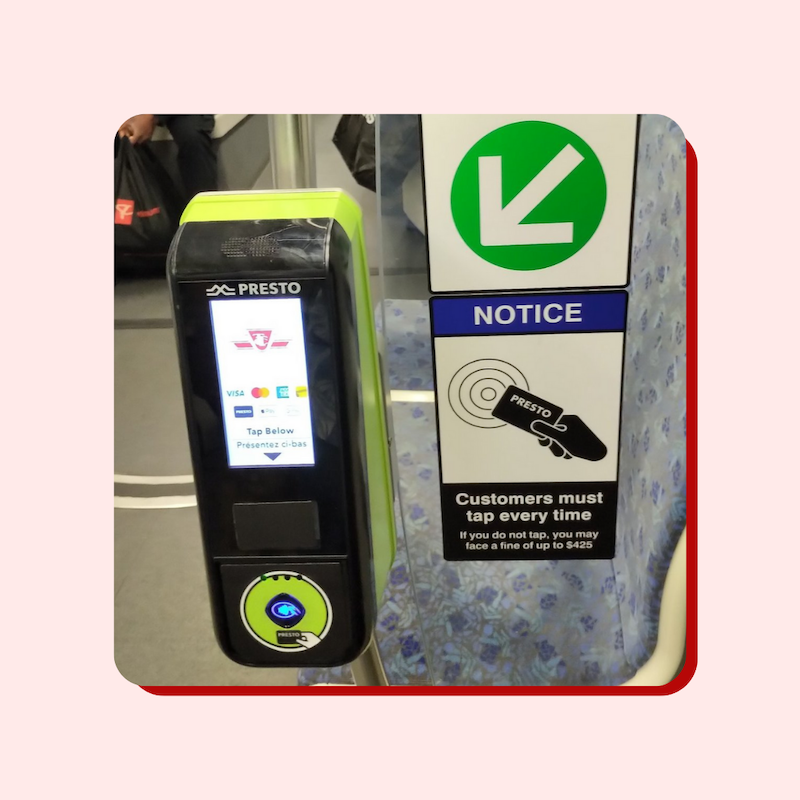
Travelling in a bus or local transit can reduce your cost from a cab and also reduce your travelling time in the case of big cities like Toronto.
Apply for a local transit card from a local transit office. Transit passes can be made according to the number of rides you need per month with less cost or for a full month with standard cost and unlimited rides per month.
The Canadian transit system is very good and there is no hustle in catching a bus in any city. You just need to have the number of a bus that is going to take you to a particular destination.
To know the bus route, you can just download the bus route from the official website or you can also download the app on the phone which will accurately let you know the bus route, timings, and bus number.
15) Visit Employment Agencies
Job is a pre-necessity for everyone to survive in any country. As a newcomer in Canada, never expect that you will take your dream job as soon as you land in Canada unless you are lucky to have a job in your stream right after landing.

Most of the newcomers do survival jobs just to support their normal livelihood at the start or until they find a job in their field.
Talking about me, it has been months since I landed in Canada and got a job, wanted to share my experiences with new struggling fellow immigrants. That is the reason I am spending most of my time writing articles from my deep research and experience for you people who want to know what to do after landing in Canada.
Many websites help you to find jobs in your city like Indeed, Glassdoor, Google Jobs, and many more.
In addition to this, you must visit local employment agencies. It can be government-funded, non-profit organizations or private agencies.
Talking about non-profit organizations, as I mentioned above my experience with Saskatoon Open Door Society-Employment Service Unit is very good.
Raphael Pinto, my employment counsellor, helped me a lot with how to find and apply for a particular job that is related to my field. Despite this, these people also give moral support to all newcomers who are struggling to achieve their first job in a new country.
Apart from this, I also went to a private employment agency called “Express Employment Professionals” and met with an outstanding lady employment counsellor “Darlene Cooper”.
She let me know that I am not alone who is sailing in this boat and she is struggling a lot to cover this gap between newcomers and finding their field job.
I must say, Darlene! You are an amazing person and thanks for being there for me and everyone like me.
Search on Google about your city’s employment agencies and have a visit and get registered with them so that they can help you in finding a job.
16) Start Preparing for the Job Interview
Everyone can crack the interview all we need is to polish the skills specifically for Canadian interviews. Search online on how to make a Canadian-style resume and cover letter.
Search how to make a targeted resume by describing the job duties according to the key responsibilities mentioned in job postings.
| 💡TIP: Never make the mistake of sending a general resume to employers as I did. Make a different tailored resume for every job according to the mentioned responsibilities. |
Watch videos online, and train yourself by practicing in front of friends, family, and a mirror.
In addition to this, you can join the program in any non-profit organization on how to make a Canadian-style resume and cover letter, and how to prepare for an interview. These kinds of people will help you practice by taking mock interviews like you are giving an interview in an actual environment.
17) Join Mentor-ship Programs
Some government-funded agencies or newcomer centers run mentor-ship programs which help to settle the newcomers in their field of work and some entry-level positions.
Agencies run mentorship programs several times a year so it is good practice to put yourself on the waiting list even if you did not succeed in getting a seat at once.
Visit every settlement agency near you and ask about their programs and register yourself under every program which is offering work placement after in-class training even though work placement is not paid at the start.
At least you are gaining Canadian experience to mention in your resume and if everything works well then the employer can hire you in the future.
Search on Google about the mentorship program in your province and you will get the details according to your location.
18) Buy Your First Car: How to Buy a Car in Canada?
After landing in Canada, a Car is as important as renting an apartment.
Some people prefer using public transport which is fine for the initial days, but you need a car to start your daily life here.
Buying a car is not a big hassle here in Canada, but it can be a BIG HASSLE if you buy the wrong car. Repair costs are so expensive here especially when you are starting a new life.
Do your proper research before finalizing the deal of your first Car.
Make your mind about which type of car would you like to buy, Sedan / SUV / Crossover, etc.
Decide your budget because as a new immigrant every $ counts.
Start your search from Kijiji or Facebook Marketplace. I would personally suggest you buy directly from the owner because you might save a lot of money. After all, I felt that buying from any authorized dealer is always more costly than buying directly from the owner (But only if you get all the right information mentioned below).
Well, whether you are buying from the owner or dealers, make sure you go through all the necessary and important information about the car’s history.
Check the car’s history through the Car’s VIN – Vehicle Identification Number (To check the car’s collisions / Theft reports).
Check the Car’s inspection reports.
Ask for LIEN details (LIEN is LOAN/DEBT stands on the car)
It would be great if the car owner had a Carfax report. (OR you can personally get the CarFAX report because it’s better to spend a few bucks before spending thousands) You can check who was the previous owners of the Car, In which province it was first bought and in which provinces it was driven earlier.
Check Canadian Vehicle History Reports | CARFAX Canada
Winter Tires
Another important thing to consider when buying a pre-owned or new car is winter tires. The reason is ‘snow’ on the roads.
In many provinces, it’s snowing all winter. You will need to buy a good set of winter tires. When you are buying a car, ask for winter tires most of the owners already have them installed.
Otherwise, you may consider buying on your own.
Although it’s not mandatory in most of the provinces all the provincial transportation authorities strongly recommend buying winter tires.
Do check the “winter tire law” in your province.
If you are not in a hurry to buy your first car, well there is another option available.
Another option is Rent-A-Car for your initial days.
Check here: Rental Cars at Low, Affordable Rates
Cost varies according to the car/vehicle you choose, location, days, etc. Price starts from as low as $21/per day or less.
Car Insurance
Having a car and a valid driving license is not enough to drive a car in Canada, you must have car insurance before driving a car and it is illegal to drive a car without car insurance. You will need to pay every month for car insurance.
There are different types of car insurance available according to a different province and different coverage which you can check on the above-mentioned links or by directly visiting the authorized government offices.
The cost of your car insurance depends upon the plan (Monthly/Yearly) you choose according to coverage and the following factors:
- age
- driving record
- living location
- driving experience
You can opt for monthly, yearly or half-yearly payments for your insurance.
Baby Car Seat
If you have a baby. You must buy a baby car seat which is mandatory all over Canada. Here in Canada, even if you have to take your baby from the hospital to home you would need an Infant / Baby car seat installed in your car.
| 💡My Pick: I have researched a lot about the best affordable baby car seat for kids and found Safety 1st Alpha (Check here) was the best-selling and affordable option on Amazon. It has a solid build and comfortable seating, overall It was the best choice and was easy to install. As they say, never compromise with safety and quality. |
19) Apply for an Identity Card from your Province
An Identity card (ID) is very important for all the official work here. You would require 2 pieces of ID for most of the registrations/bank openings/buying a car/for a driving test. You would need to take your COPR and Passport along with you all the time until you won’t receive your PR cards or you won’t get your driving license.
After getting accommodation, apply for your ID card from your province so that you won’t pick up your passport all the time.
20) Flu Shots
Flu shots are also known as Influenza vaccines. The flu shots make your immunity system strong and protect your body from getting infected by Influenza Viruses.
The Canadian government recommends all Canadian residents get free Flu shots during the flu seasons which occur mostly during fall, winter, and early spring.
You might consider it getting or not that depends on you.
By the way, it’s available FREE and you can get it from any pharmacy/doctor or nurse practitioner/public walk-in clinic.
21) Register your Child for School or Day Cares
Schooling is completely free of cost here in Canada starting from Kindergarten and continuing from grade 1 up to grade 12.
The School session starts from September to June. July and August are the summer holidays. So if your child is a school kid you should consider planning your landing month according to that.
You urgently need to register your child’s name on the school list as soon as possible because the waiting period might be too long for a specific school, especially for daycares.
You can get more details according to your city from your nearest settlement agencies/newcomers’ information centers.
There are different types of Schools / Daycares in Canada. Two major schools are Catholic schools and Public schools.
Here are the children’s age categories according to the Canadian education system :
Kindergarten: Children should be 5 years old to enter the school’s Kindergarten
Primary / Elementary School: After Kindergarten, they enter in primary/elementary school from grade 1 to grade 7/8, depending on the school/province.
Secondary /High School: Starts from grade 8 or 9 To grade 12. Some schools in some cities have a junior high school level which lies between elementary school and high school
Daycares/early learning age group is 6 weeks up to 5 years and all the daycares are paid for sure. Fees may vary according to your location/child’s age group etc.
There are two types of Daycares:
- Licensed
- Un-Licensed
Visit your provincial government website to find a licensed daycares list and start your search.
| 💡Important Tip: If your family income is low, The Canadian government helps you to pay your childcare subsidy. For that, you will have to find a subsidized daycare list from your province government site. A subsidy may vary every month according to your income. |
22) Networking, But How?
As a newcomer in Canada, it is obvious that we do not know anyone here. Some people have friends here in Canada but most people like me do not have any friends here.
Networking is important here in terms of making new connections and more importantly, making references in Canada.
References are important while applying for any job in Canada as every employer needs someone in the same company who can ensure new employees.
Networking can be
- Un-professional
- Professional
Un-professional networking leads to making new friends nearby, visiting community centers and meeting people from the same nations.
Start talking to strangers in your building, search local events on Facebook or Google, and join the events. Do not feel shy while talking to anyone here because people in Canada are very helpful, calm, and talkative. Join local groups and pages on Facebook to get updates on your city and events nearby.
On the other hand, professional networking means making new connections related to your profession.
LinkedIn is the perfect example of making new professional connections especially related to your field or related to a specific organization.
I attended a session on networking given by “Dolores Wollbaum” an employment specialist in Saskatoon’s Open Door society-employment service unit. Dolores taught us the importance and tact of networking in Canada. She let us know about the importance of LinkedIn in Canada.
In Canada, when you apply for any job online, most employers ask you to fill out the LinkedIn profile link. Hence, it is a good practice to update your professional LinkedIn profile regularly.
Dolores also taught us the way of networking by writing the name of every single person on paper you know in Canada even though they are your pharmacists and start connecting with every person whose name you have written on paper.
I implemented this strategy on the same day and sent a connection invitation to the same person who taught us the same. Yes, Dolores itself.
Thank you, Dolores!
23) Start Volunteering [Important]
Help is a two-way road if you help someone, someone will help you. Canada is a country where volunteering is more valuable than doing a job. Volunteering is something that you can start anytime and in any stream.
Register yourself under various organizations for volunteering and start helping others. One other benefit of volunteering is making connections. As I mentioned above, networking is very important in Canada. Go out and volunteer to make connections and references.
Some non-profit organizations or government-funded organizations also give the provision volunteering office administrations/clerks and much more other designations. Hence, volunteering is the best way to gain experience in Canadian work culture which will give a boom to your resume.
My personal volunteering experience:
| My volunteering experience starts at Global Gathering Place in Saskatoon, one of the best settlement agencies in Saskatoon that provides various services to newcomers.
I started assisting Carlie Russell (Program Facilitator) with one more volunteer William Lian in computer level 2 classes. As an IT person, I love to help newcomers who want to learn basic computers which eventually help them to achieve their goals. I would like to thank Carlie Russell and Erika Thogersen (Volunteer/Program Facilitator) who gave me a chance to volunteer in such a great organization. |
24) Furniture Bank Canada
You just landed here and starting a new life. Looking for household items? Start your search from Furniture Bank Canada. You will find pretty good quality FREE furniture there.
You can get information from your nearby Welcome Immigration service center.
#1: Find your nearby ‘Furniture Bank in Canada’
#2: Get yourself registered with them.
#3: You would need two pieces of ID, a Copy of COPR and a Passport.
It might take some time to get your appointment confirmed and you will get only ONE appointment, you can’t postpone it otherwise it will take a while to get another one.
Once you make it as per your appointment. You will get a fixed time to choose/decide the furniture you want or maximum you may get 1 hour to figure it out.
But you will be allowed to choose a limited number of items only from there.
You won’t be paying for the furniture because most of the items are donated by people. You will just have to pay for the shipping cost.
- Check the Furniture Bank Website for more details.
- Find a Furniture Bank Near You Here.
25) Search House Hold Items on Kijiji
Just in case you are not getting a furniture bank appointment or the furniture bank is not available in your city. You can still find many good deals on Kijiji or Facebook marketplace.
If you are lucky you will find many good FREE options available there as well. People are generous here they sometimes post free items to be picked up as soon as possible.
Make sure items are bug/smoke/pet free before considering buying used items/free items. (I would suggest you buy brand-new mattresses/blankets).
26) Offline Google Map
Download offline Google Maps on your phone to save your data while using Maps all day in the initial days.
Data is very costly here and you will need to use Google Maps all the time when you are stepping out. So it’s better if you can download offline Google Maps on your phone right after landing.
Follow these simple steps to download offline Google Maps.
| 💡Check here: Google Maps Help |
27) Library Card
Apply for a library card as libraries provide various facilities free of cost and some facilities at very less cost like printing paper/photocopies.
28) Language Assessment
Take a language assessment test if your IELTS is expired as most employment agencies demand a valid CLB level from candidates.
Although you are a good English speaker English is not the first language for most people so it is always good to practice English more and more for better fluency and accent.
29) Emergency Contacts
Save emergency contact numbers in your phone like local police station numbers, Ambulance, or other emergency numbers.
Beware of any scammers/fraudsters. They are everywhere in the world.
Do not trust anyone blindly.
30) Shopping Membership Cards
Make Costco, Walmart or Real Canadian Superstore membership cards for good deals and promotional offers on groceries and many other sections. You are going to save extra money when you will get a master card. Just do some research according to your city/area and grab the best offers.
| Important Resources: |
Conclusion: Things to Do After Landing in Canada
To sum up all the details, I would like to say ‘All the Best’ to every single person who landed in Canada as a permanent resident.
I know the starting of everything is hard but soon it will pass and life will come on track after an initial struggle. After all, we all have come across this struggle of getting permanent residency in Canada and after reaching here the initial struggle is nothing in front of that which we all had faced in the past.
I hope I have covered everything about ‘important things to do after landing in Canada’ but as I am also in my initial struggling period here, I may miss some of the other things which I will face in the future but I promise you guys to keep updated by posting my new blogs.
Experts, please correct me if I have left anything or if any correction is required.
Please leave your valuable comments if you have learned something new from this article.
Ah! Don’t forget to visit Tim Horton’s very often. It makes you feel that nothing is more important than Tim Horton’s coffee in Canada, not even a job. 😛 Jokes apart.
If you find it helpful please do share it and post your suggestions in the comments. It will inspire me to write more about my experiences in Canada in detail.
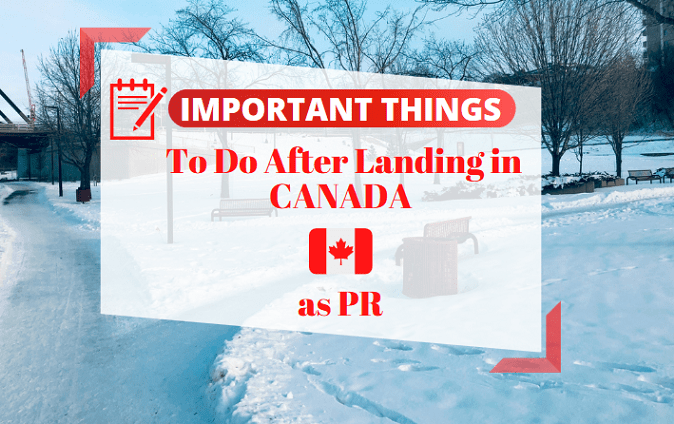
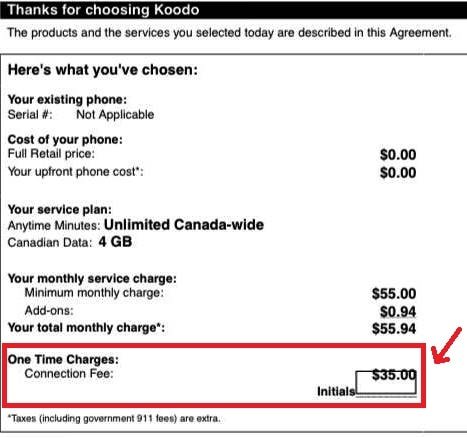
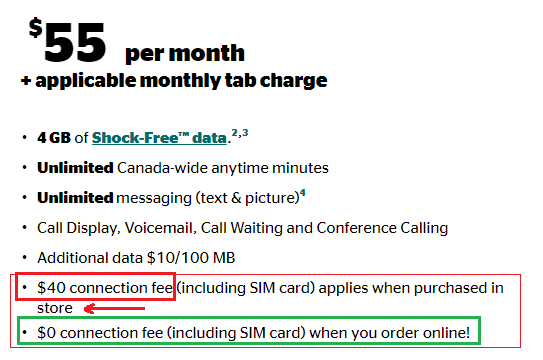
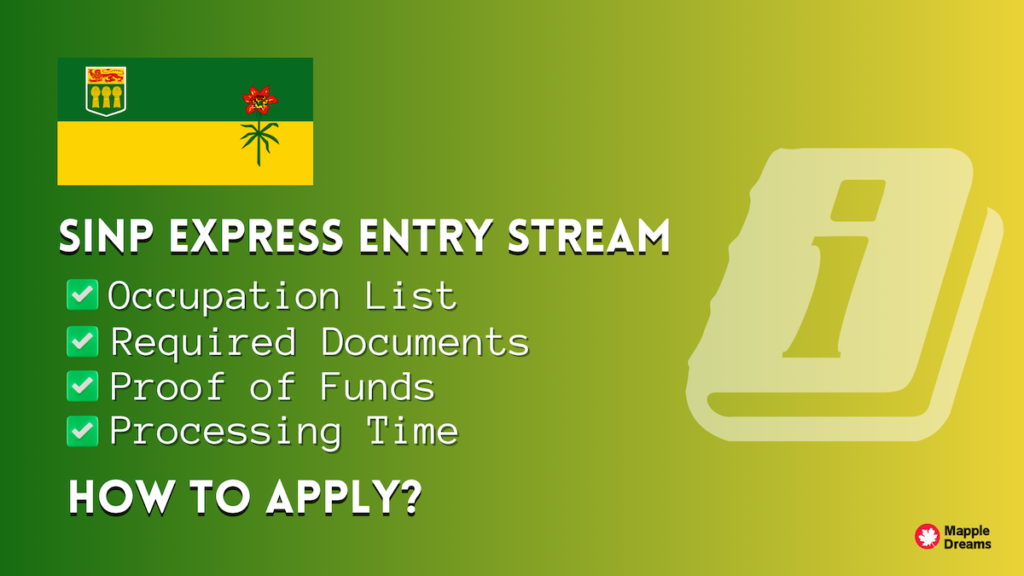
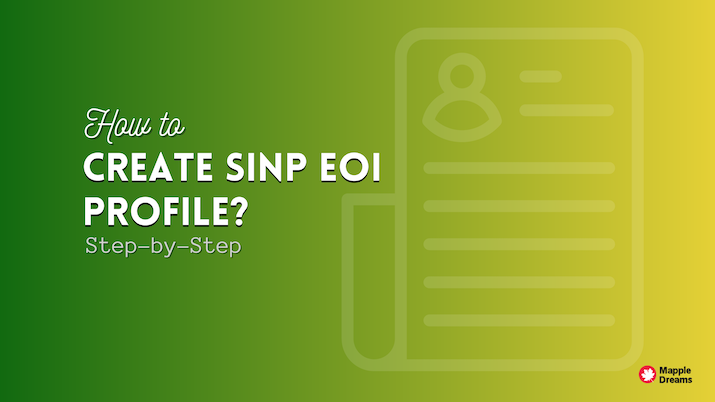
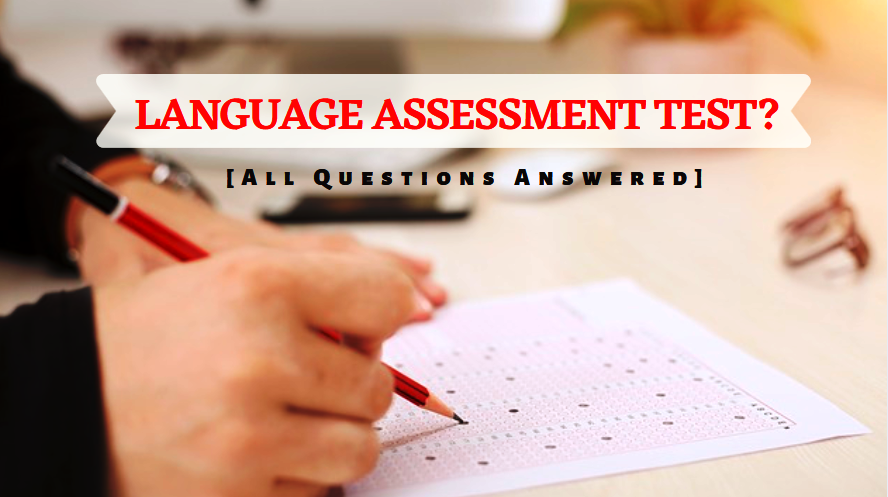
Thanks to the author for providing detailed information about starting fresh new life after landing in Canada. Great work.
This article is amazingly comprehensive, from my point of view. A very thorough and friendly writeup! You opened my eyes to what I should expect as I journey towards SINP and PR. I am grateful. Keep up the good work, Sona.
Hi Sona,
Thank you so much for creating this blog post. This is certainly a masterpiece in true sense. I am glad that you did it!
Gained so much knowledge on our upcoming trip to Canada which is due for May 2023. Answers to so many points were coming on its own. It was like you ask for it and you have it.
Gratitude & Much Power to you!
It’s my pleasure, and I am glad to hear that you find it helpful. All the best for your upcoming trip!
I’m planning my move as a single person and having as much information as possible is important to me as I like to plan everything well. Thank you so much for this detailed guide
Thank you so much for the information. it is really helpful for people like me who are moving to Canada for the first time as a permanent resident. I really wonder how technology has made our lives easy. Thank you. heaps of blessings and gratitude. 🙏🏻
Thank you so much for the tips!
I was quite lost on how to get my parents set up after they land, and your guide was very helpful!
I enjoyed reading through, my partner and I have summited our application and hoping to get a decision before the end of 2022.My kids are looking forward to a white Christmas and we are hopeful. I have been proactive by reading materials to prepare me for the life ahead. Many thanks for this it was quite insightful.
hi!,I like your writing very much! share we communicate more about your article on AOL? I need a specialist on this area to solve my problem. May be that’s you! Looking forward to see you.
This article is one of the best articles I have ever
read. Congratulations to the author, I distributed the article to my friends.
Good Luck!
Thank you Dorthy, Stay connected!
really very useful guidance for new comers.
Thanks to author
Thank you so much for providing such an organized and detail information. This means a lot to me.
Thank you so much for your appreciation Swati, i am glad that you find it helpful. Stay tuned for more amazing helpful posts. Subscribe to the mailing list so that you can get more posts direct in your inbox, Thanks again!